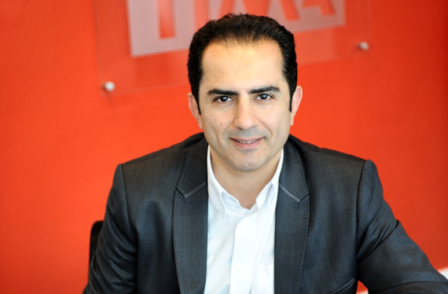
As we pass the second anniversary of the Syrian uprising there seems to be more confusion about the reality of the situation on the ground and the possible solutions to the crisis.
Social media, which was credited with bringing down governments across North Africa, and giving opposition groups a platform from which to rally support and take control of the flow of information, has so far failed to have the same impact in Syria. In fact, extremist groups are now just as adept at using digital media to spread their message and rally support for their cause; an ironic outcome of the democratisation of information.
The events in the Middle East saw us greet the new age of digital media and ‘citizen journalism’. European and US broadcasters have either closed down or downsized their overseas offices preferring to fly reporters in during breaking news stories for short periods of time and filling the gaps by asking members of the public to upload stories and video footage.
But the lack of local contacts in Syria and no time to gain a thorough understanding of the local and regional politics at play means that these journalists are often denied access to key locations such as Damascus and end up reporting about the humanitarian crisis from the periphery, in Lebanon and Turkey. The growing numbers of Syrian refugees is, of course, a very important story but if we are going to debate the possibility of going to war with Syria the public must understand the historical and regional power play that makes this event so complex and dangerous for the Middle East and the World. We cannot rely on social media to give us an accurate account of events let alone provide accurate and impartial context.
Middle East broadcasters and audiences are split along sectarian and political lines with pro and anti Assad coverage following the political and sectarian fault lines in the region. This in turn is adding to tensions in Lebanon, Iraq and the Gulf.
Russian and Chinese broadcasters have better access to Damascus and their coverage reflects their position of no military intervention with Russian coverage focusing on the rise in Islamic extremists within the opposition groups in Syria. European and US broadcasters have limited access to Damascus and have, on the whole, focused on the humanitarian crisis and the plight of refugees. As a result there is widespread support for humanitarian aid and initiatives but little or no support for military intervention of any kind. This may, in part, be due to the fallout from the wars in Iraq and Afghanistan but it may also be due to the lack of reliable, verified and well-researched information and journalistic analysis.
We have been very eager to announce the end of traditional media and the birth of digital media with the public replacing journalists as real-time storytellers and witnesses. Whilst there will always be a place for citizen journalism, Syria has shown us that when we are faced with a complicated and multi-faceted story with many interested and inter-connected parties and political interests, making sense of the situation requires old fashioned research and journalistic skill.
Alla Salehian is CEO of TIMA – The International Media Associates –which provides of services for the international broadcast industry and he has extensive broadcasting experience in the Middle East.
Email pged@pressgazette.co.uk to point out mistakes, provide story tips or send in a letter for publication on our "Letters Page" blog






